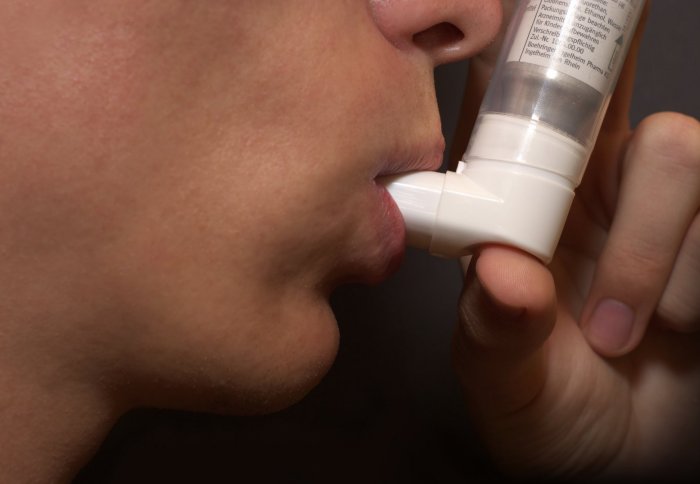Severe asthma patients less responsive to treatment
by Sam Wong

People with severe asthma are less likely to respond to the treatment they depend on compared to people with mild asthma, according to new research.
The findings come from the first analysis of a study that will collect over three million samples from 300 children and 700 adults, some with severe asthma, some with non-severe asthma, and some without asthma.
The research, led by Imperial College London, is being presented at the European Respiratory Society (ERS) Annual Congress in Barcelona today.
Although asthma is common, it is not widely known that there are different types of the condition. Experts don’t yet understand why some people suffer a more severe form of the disease than others.
The EU-funded U-BIOPRED project is looking at how severe asthma, often described as ‘steroid-dependent’, differs from one person to another, in the hope of categorising the disease into sub-groups. The aim is for researchers to develop more personalised medicine, which treats the specific disease in each individual.
The results of this initial study have described common characteristics found among children and adults with severe asthma.
The researchers found that 55 per cent of adults with severe asthma take inhaled steroids regularly to control their symptoms, but they still experience exacerbations and have more obstructed airways than people with mild or moderate asthma.
Dr David Gibeon from the National Heart and Lung Institute at Imperial College London, who led the study, said: “We would like to understand why people with more severe asthma are less responsive to the effects of corticosteroids. Our parallel work on the ways in which patients with asthma respond to corticosteroid treatment, which is a commonly-used treatment for asthma, show that asthmatics may become less responsive to this treatment in many different molecular ways. This initial analysis will provide an overview of the groups which exist within asthma, which will help us develop a more personalised approach to treating the individual patient with asthma.”
Based on a news release from the European Respiratory Society.
Article text (excluding photos or graphics) © Imperial College London.
Photos and graphics subject to third party copyright used with permission or © Imperial College London.
Reporter
Sam Wong
School of Professional Development